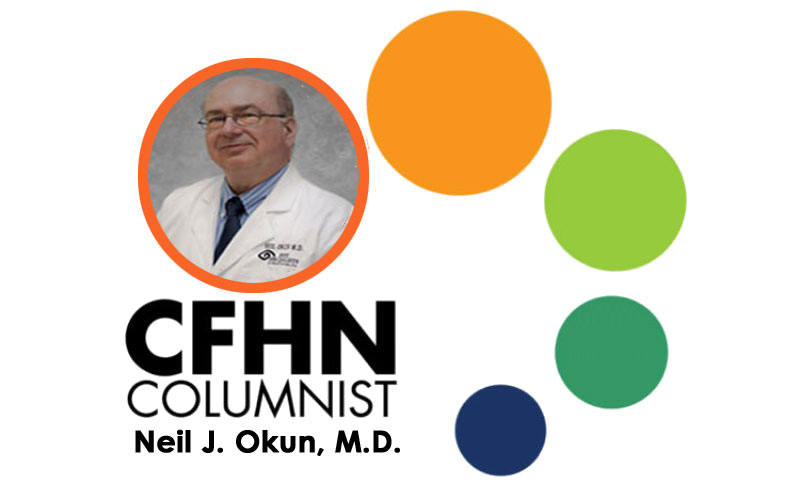By Neil J. Okun, M.D. Board Certified Ophthalmologist
Macular Degeneration affects one in five people aged 70-84. The major risk factors for Macular Degeneration include family history, smoking, uncontrolled hypertension (high blood pressure), high cholesterol and obesity.
Nine times out of ten, macular degeneration presents as the “dry” type. In Dry Macular Degeneration, the retina gradually thins out and pigmentary changes may occur, along with lumpy deposits under the retina called “drusen.” There may be a slow, gradual drop in central vision. In most people these changes occur over a period of many. The condition may affect both eyes, but is often asymmetrical.
About one time in ten, abnormal new blood vessels grow in under the retina, where they may leak fluid and bleed. With Wet Macular Degeneration, you do not lose your side vision; however, the central (reading) vision may drop rapidly.
Even before symptoms develop it may be possible to detect macular disease with a dilated eye exam. People over 65 should have an annual comprehensive eye exam.
There is no cure for macular degeneration; however, certain nutritional supplements may slow the progression of the disease and reduce the chances that dry AMD will progress to the wet form. The Age-Related Eye Disease Study (AREDS-2) showed that a specific formula of Vitamins C and E, lutein, zeaxanthin, zinc, and copper is beneficial. Dark green, leafy vegetables in the diet may also help stabilize Dry AMD.
There are very effective medicines for treating Wet AMD. Some are injected into the eye at regular intervals using a very tiny needle. If left untreated, wet macular degeneration usually results in loss of central vision. With these new medications and timely treatment, we are now able to maintain vision in up to 90% of patients, and can actually improve vision in up to 40%.
Bio: Dr. Okun is a Retina Specialist at Eye Specialists of Mid-Florida. He sees patients in Winter Haven, Haines City and Sebring.
